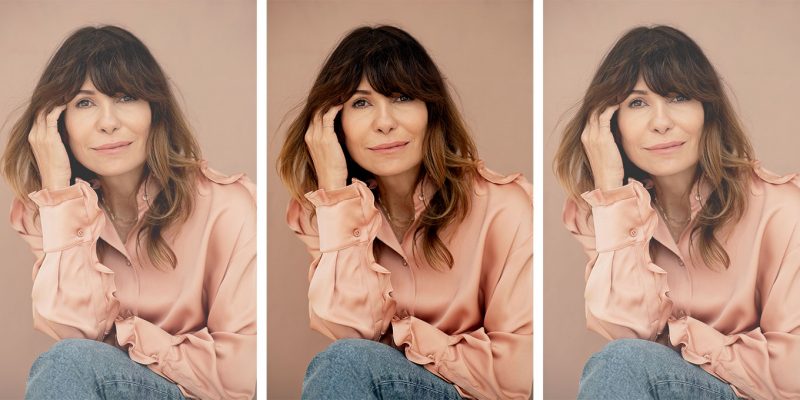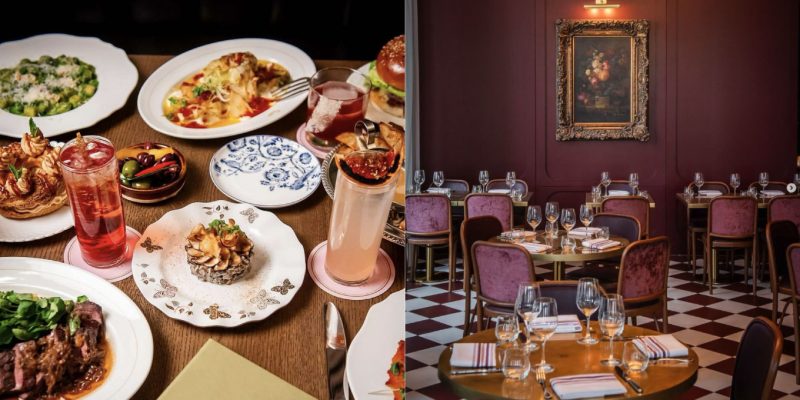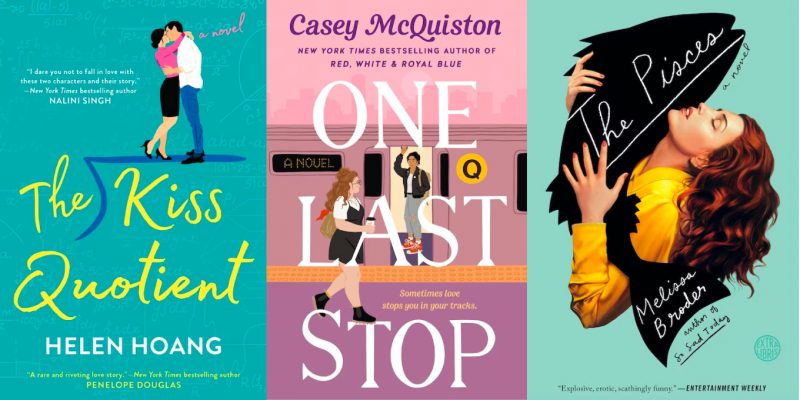Culture
Everyone is Talking About Kate Elizabeth Russell's Debut Novel, My Dark Vanessa
Lawyers for Harvey Weinstein tried to have a juror who was reading My Dark Vanessa during his trial removed.
by : Sara Black McCulloch- Mar 18th, 2020
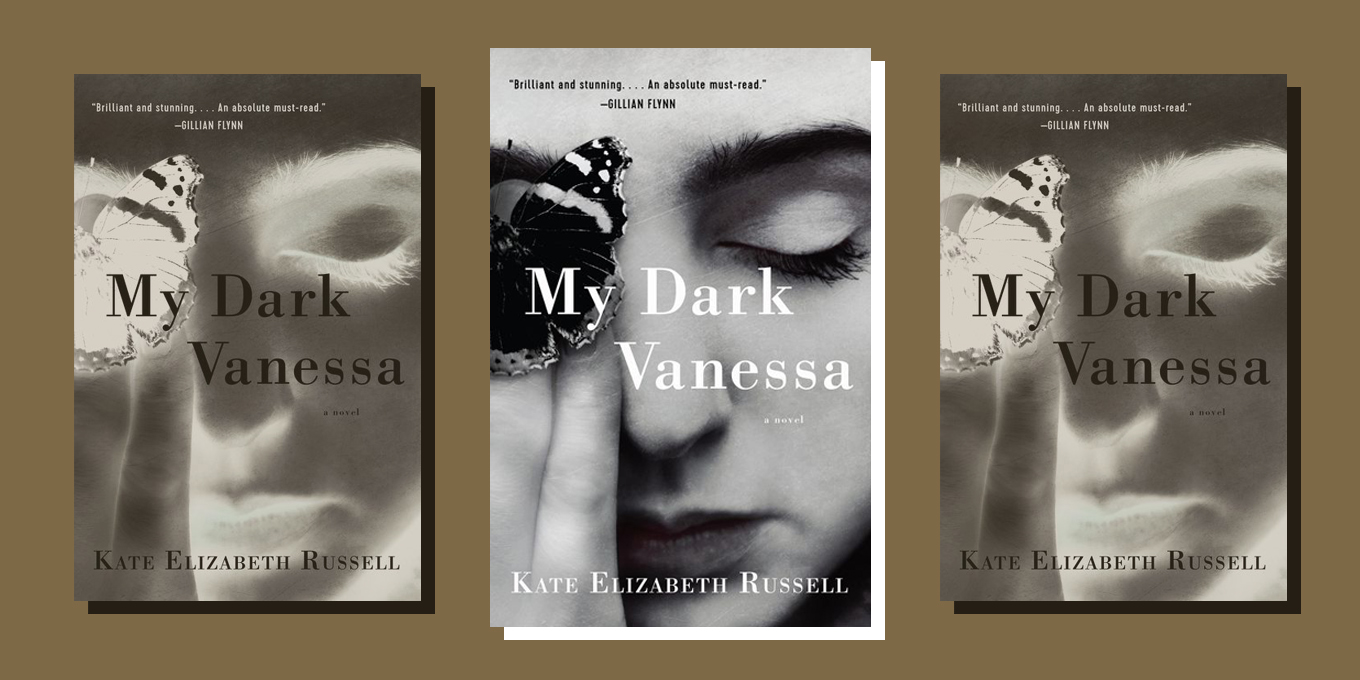
In My Dark Vanessa, isolation feels like a curse for the titular character because that distance keeps her removed from her secret life. Vanessa Wye lives on a lake in a small town in Maine and attends boarding school a few hours away. Like most teens, high school is the centre of her life, however it’s a budding relationship with her English teacher that occupies her time.
Author Kate Elizabeth Russell has a different perspective: she not only thrives in isolation, but relies on anonymity to shift into her fictional worlds. Her husband is an academic and she goes wherever his research takes him – usually a small town where no one knows her. “I’m very removed from the publishing world in that sense and it helps me on a daily basis to think about things that are very different from that,” she tells me from their home in Wisconsin. The book, however, catapulted Russell’s name into the publishing world when Entertainment Weekly announced it had garnered an “eye-popping seven-figures” and an endorsement from Stephen King.
My Dark Vanessa has been billed as “Lolita for the #MeToo era,” but that comparison is too simple: This story about a sexual relationship between a 15-year-old girl and her 42-year-old teacher isn’t told from the Humbert Humbert perspective; it’s equal parts coming of age and coming to terms, which means that Vanessa has narrative control. The book begins as accusations of sexual assault pile up against her teacher, Jacob Strane, and Vanessa, now in her twenties, struggles to make sense of her own experience with him.
I spoke to Russell about Vanessa, the controversy surrounding her book and why she wants it to be difficult to read. Here is an edited version of the conversation.
Note: Spoilers for the entirety of My Dark Vanessa ahead.
You were writing My Dark Vanessa during your MFA; what did people think of Vanessa during workshops? Were you protective of her at all?
Kate Elizabeth Russell: I am pretty protective of her even still, which is an interesting dynamic to have when the book is going into publication. I first started workshopping Vanessa when I was an undergraduate, when I did a BFA in creative writing. Undergraduate workshops were very nurturing: People accepted Vanessa in a way that we all sort of accepted each other’s works. We were kids fumbling around as undergraduates. In the MFA program, the workshops were a little more serious and we were taking ourselves seriously as writers and so we had high expectations of each other. With Vanessa, there were certain responses I tended to get in workshop settings – maybe because it was the mid to late 2000s. When you’re writing an unlikable character who is a woman, that unlikability can end up being the centre of conversation. And when there’s sex involved in the story, then it can really become the centre of conversation. I remember sitting through workshops where the focus was on whether Vanessa was a slut or not. I got encouragement both from my peers and my professors to write from the teacher’s perspective, which never felt right to me. I did try it, but it felt like pale imitations of Lolita, like writing from the Humbert Humbert perspective.
“I remember sitting through workshops where the focus or discussion was on whether Vanessa was a slut or not”
I was going to ask if you ever tried to write from Strane’s perspective because he has narrative control over Vanessa. He tells her how to interpret the story. He puts her in a narrative bind, so to speak, and even Vanessa says, at one point, “It was mostly Strane doing the talking.”
KER: He is very dominant in that way. The experience of writing from his perspective did do a lot for me in terms of knowing his character, even though I didn’t end up using his perspective in the final version of the novel. He changed so much as a character because, once I decided to write specifically from only Vanessa’s point of view, I really had to figure out how she was perceiving Strane because that’s how his character was going to emerge. In earlier drafts, Strane was a lot more sinister. He was almost monstrous and scary. In a way, it was easier to write him that way because it made him a little closer to a villain, more simplified, but I realized that by turning him into a villain, I was cheating Vanessa out of her own complexity. I really needed to show how manipulative he could be, but also how appealing he was to her. I needed the reader to understand that — and if he was just a scary monstrous villain, then the reader wouldn’t be able to empathize with Vanessa in the same way.
Strane also controls her confession, and how she comes forward. Most of the time, the way the system is set up, women either have to keep it to themselves and move on, or they get thrusted into talking about their trauma or abuse before they’ve even processed it. How difficult was it to get your reader to understand and analyze this?
KER: That’s a good way to put it – the difficulty in knowing exactly what has happened to you. Vanessa was not going to be able to begin to understand what’s happened to her until Strane was out of the picture. I always knew that it was absolutely necessary for him to die. His death is in the exact centre of the novel, splitting the story in two, because once he’s gone, Vanessa is able to open up to her therapist which I isn’t something she would have ever been able to do while he was alive because he would have considered it a betrayal. That also leads her to having face-to-face conversation with Taylor [the other student accusing Strane of abuse] and her mother.
I always knew that I wasn’t going to get Vanessa to a point where she’s fully healed, because what does that even mean? These connections with other women are the start of the process of figuring out what happened and finding a new lens to see her own history through. It’s still different from coming forward and sharing your story, and, certainly because of #MeToo and because of the role that social media has started to play in our lives, we have started to expect that’s what part of healing is: Coming forward and sharing your story in a public sphere… I don’t think that’s necessarily true, at least not in the context of the book that I wrote. The real path towards healing is in having those conversations and connections.
“We have started to expect that’s what part of healing is: Coming forward and sharing your story in a public sphere.”
In the introduction, you briefly allude to your own experiences; did you ever feel pressure to reveal personal details that you weren’t ready to talk about in order to promote the book?
KER: Debut novels, especially coming-of-age ones written in the first person by women, tend to be read as autobiographical — or confessional, when sexual abuse is part of the storyline. And over the past few years, we’ve all read trauma narratives on social media because of #MeToo, so I figured there would be a certain assumption that this novel is autobiographical. Certainly there are obvious parallels between Vanessa and I: I grew up in eastern Maine and Vanessa grew up in a similar setting. And when I was young, I did have experiences that informed this novel; those experiences happened and they’re part of who I am, but I never wanted to use my personal life to publicize this novel, because it’s not my story: It’s Vanessa’s story. Portraying it as anything other than fiction would be misrepresenting the book and misrepresenting myself. With the help of my publisher, I did my best to draw a line between myself and Vanessa and between my own experience and this novel. And going forward, I still want to be the best advocate for the book that I possibly can be and answer questions as thoughtfully as I can, while maintaining that boundary in the hopes that maybe an aspiring writer who is dealing with similar subject matter but doesn’t want to come forward and lay themselves bare for the public – maybe for someone watching the rollout of this book, and how someone like me is navigating, it might be helpful.
The ethics of journalism come up in the book. There is the journalist who is very pushy with Vanessa, or Taylor, who is very public about the abuse taking place, but doesn’t want to reveal the details to anyone. These women are talking about their experiences on their own terms.
KER: It’s really complicated and at least in the novel, the journalist, Taylor and Vanessa all think that they’re doing the right thing. And all three of those perspectives can be true. Personally, in researching and reading while working on the novel, I got really interested in how journalistic standards – specifically, in terms of veracity and corroboration – fit in with what we know about sexual violence, traumatic memory and the lack of witnesses when acts of sexual violence take place. Survivors’ stories can change over time through no fault of their own: It is certainly not from dishonesty, but how trauma affects the brain. Rolling Stone published an article in 2014 called “A Rape on Campus,” and then the Columbia School of Journalism audit picked apart the research and writing process of that article. I was fascinated that one of the suggestions from the CSJ audit was that a way for journalists working on a story of sexual violence to avoid problems is to only work with survivors who can prove through witnesses and verifiable stories that what happened to them really did happen. That makes sense, but at the same time, my immediate thought was: Whose stories are being excluded by those requirements? And that’s where fiction comes in, at least for me. That’s the power of fiction: It gives you the space to show perspectives of a character like Vanessa who wouldn’t come forward — because who would believe her? — because the story was too messy.
Or she wasn’t the ideal victim.
KER: Exactly.
When the book was sent to the first round of editors, there were some immediate rejections from people were uncomfortable reading this and yet Lolita is considered a classic. Why are we still so resistant to considering Lolita as anything but a love story?
KER: It’s interesting. We’ve begun to talk about Lolita as a story of abuse, but why is it so easily misread as a love story? One of the reasons we often point to it is that it’s written so beautifully: The language is so gorgeous; it sucks you in and almost tricks you. It lulls you into the state where you miss the clues or imagery that Nabakov puts in that shows that this is terrible and abusive, but you skip over it because Humbert is that manipulative of a narrator. With other stories of sexual abuse, especially ones written from the victim’s perspective, other questions start coming up: What is the purpose of this text? Is this text just going to be used as a manual for predators? What is the message here? Is this teaching us something? Is it responsible to write a story in which no one is brought to justice? Or in which the victim is engaging with her abuse in a way that’s problematic or self-destructive? And so Lolita is too easy to read, but stories from the victim’s perspective are too difficult — but I think they should be difficult! Stories of sexual abuse should be hard to read and hard to talk about because otherwise I would feel that, as a writer who has dealt with this subject material, I have done wrong by Vanessa. The realities of sexual abuse have so often made palatable or been glossed over. I didn’t want to do wrong by Vanessa in the interest of making the reader more comfortable. So if people respond to my book by saying that it’s dark or made them uncomfortable, then that just means that I did my job.
“If my book wasn’t difficult to read, then I would have done wrong by Vanessa because the realities of sexual abuse are so often made palatable or glossed over in a surface-level type of way.”
The book deals with how mentorship for young writers can shift into grooming and abuse. Vanessa has potential and it’s used against her, exploited by the men in her life. Can you talk about that line?
KER: There is something about a classroom setting – especially in an English classroom where you’re asking kids to engage with literature and writing but especially to engage with you on an emotional level on a daily basis — that can become so charged. The vulnerability of students in a classroom can be taken advantage of. And that’s the familiar model of what Strane is doing to Vanessa: A teacher taking interest in a bright student, offering to read her poetry and give her feedback. I have friends who had similar experiences either in high school or college, and it never turned abusive; It was purely mentorship. But I wanted to reflect the murkiness of Vanessa’s psyche because she’s having so much difficulty trying to figure out where that line is: What would the school consider wrong if they found out? Who would actually be punished? Then when she gets to college, it gets more confusing because she’s in another academic environment but things are different: It’s technically ok to date your professors. While I was writing it, I certainly didn’t know where that line was. I had a lot of these questions myself, having spent the majority of my adult life in academic environments and trying to navigate the setting on my own. I wanted to get the reader thinking about questions like: What is the difference between a high school student having an affair with a teacher and a college student having an affair with a professor? Or even a graduate student having an affair with a professor? Where is the line and where does it shift from being inappropriate to acceptable?
“To have my book come up within the stories of the Weinstein trial, I still can’t quite make sense of it.”
Harvey Weinstein’s lawyers tried to have a juror who was reading My Dark Vanessa during the trial kicked off the jury [the judge did not allow it]. Are you thinking at all about the potential impact of the book especially in terms of that life it eventually takes on without you?
KER: That was really surreal because when the stories about Weinstein broke in The New Yorker and The New York Times in 2017, I was writing this book. It was a surreal feeling: Watching this plot line I’ve been working on reflected in the news and playing out in real time. I still can’t quite make sense of having my book come up in the stories of the Weinstein trial. I wanted to write a book that readers would want to unpack and discuss. I wanted to write a book that would be relevant and so I’m just trying to take that news — and anything else that might happen as the book is published — in that spirit. People talking about the book and the book affecting others is a good thing.
READ MORE:
Carol Shields Prize for Fiction to Award $150,000 to Women and Non-Binary Writers
Mary H.K. Choi Is Writing Romance for the Social Media Age
How Music-Industry Veteran Sophia Chang Became ‘The Baddest Bitch in the Room’
Newsletter
Join our mailing list for the latest and biggest in fashion trends, beauty, culture and celebrity.
Read Next

Beauty
Dyson Just Launched Its Most Intelligent Hair Dryer Yet
Get ready to upgrade your blowout game.
by : Lauren Knowles- Apr 25th, 2024
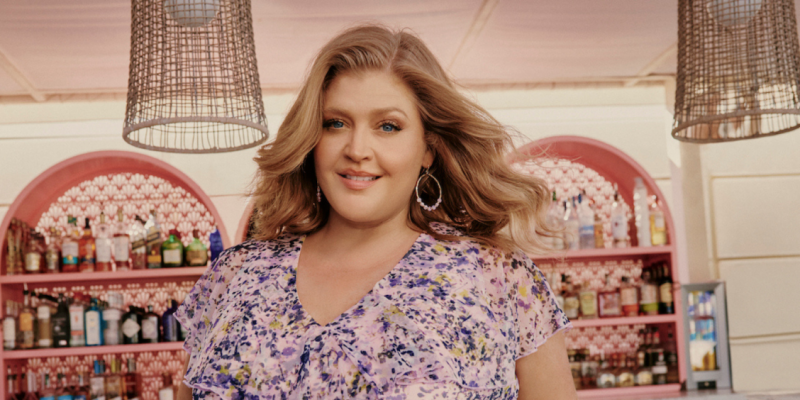
Fashion
Meredith Shaw Created a Plus-Size Summer Dress Collection That "Feels Like Candy"
The morning show host joined forces with PENN. to create a curated collection for sizes 14-32.
by : Allie Turner- Apr 25th, 2024

Beauty
ELLE Tried It: Five Serums to Up Your Skincare Game
Members of the ELLE team tested Avène Dermatological Laboratories’ five new concentrated serums. Here's what they thought.
by : ELLE Canada- Apr 25th, 2024


